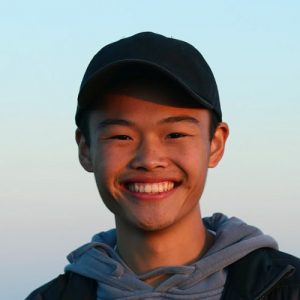
Finding “My People”
In our report Navigating Injustice, Black, Indigenous, People of Color (BIPOC) young people shared stories about the racial prejudice and discrimination they’ve experienced due to their ethnic-racial identities (ERI) and how this affected their mental health. Yet, despite these hardships, BIPOC young people said their ERI is a great source of joy and meaning in their lives, and often gives them a sense of purpose, pride, and hope. This supports prior research showing that having a healthy ERI—one that is meaningful and positive—is associated with greater self-esteem and fewer depressive and somatic symptoms.
July is BIPOC Mental-Health Awareness Month, and this blog features the stories of young BIPOC and how their ethnic-racial identities contribute to their mental health. In this post, intern Brandon Wong shares how acknowledging how his intersecting identities helped him find those like him.
My ethnic-racial identity is a part of myself that I’ve always felt somewhat uncomfortable with. As a Chinese American who grew up in a predominantly White and Asian community, I never felt alone in being Asian. In fact, there were times growing up, when it felt like my Asian identity positioned me in the majority. And yet, I never felt quite like I belonged among my kinsmen. Unlike many of my Asian peers, my family didn’t actively speak our native tongue, nor did we adhere to many of the cultural expectations or traditions associated with our Chinese heritage. Thus, while my skin color looked just like that of many of my peers, my lifestyle and home life looked drastically different. In many ways, I felt like my values and interests aligned much more with my White peers, but even then, I was always conscious of the reality that I was also different from them. This unique dynamic made it feel like I was constantly in limbo: not Asian enough to identify with my Asian peers but also not White enough to truly identify with my White ones either.
While that sense of dissonance is still something I encounter and wrestle with today, one thing I’ve found particularly helpful in integrating my ethnic-racial identity has been finding other Asian-Americans that hail from a similarly Americanized background and share my same interests and values. It wasn’t until the latter half of my college years that I first met some of those friends, but I am so grateful that I did.
During the summer before my senior year, I became good friends with a graduate student named Daniel in one of my religion classes. He and I, as we came to find, shared a deep love for the sport of volleyball, and we ended up playing almost every day after class that summer. Between our time in the classroom and on the court, we discussed just about everything that summer, from our similar religious upbringings to our mutual passion for residence life and even our similarly niche music tastes. It was a new experience—finding someone who not only shared my Asian American background but also these interests and experiences that were so important to me. That fall, I also met Jesse, another fellow Asian American who shared my love for volleyball. He and I both served as team managers for the men’s volleyball team, and with that, we spent every morning throughout the fall semester waking up at 5:45 a.m. to set up the nets, prep the Powerade, and make sure things were ready for practice. With those early mornings and our long travel days, Jesse and I became really good friends and found much more in common than our shared passion for volleyball. Most importantly, we both prioritized serving others and treating everyone with respect and dignity. Sharing these core values made it really easy to get along with Jesse. By the end of the year, I felt like he and I had known each other our whole lives, and I was so grateful to have met him.
From my relationships with Daniel and Jesse, my last few years of college showed me that there were other Asian Americans out there who were “like me” even if I was different from most of my Asian peers growing up. While this realization did not simply make all the aforementioned dissonance just disappear, it certainly gave me a sense of security and confidence, knowing that there were folks out there that I might one day be able to call “my people.” More than anything, it gave me hope for the future and convinced me that there was a sense of community and belonging to be found through my ethnic-racial identity.

Brandon Wong
Research Intern



